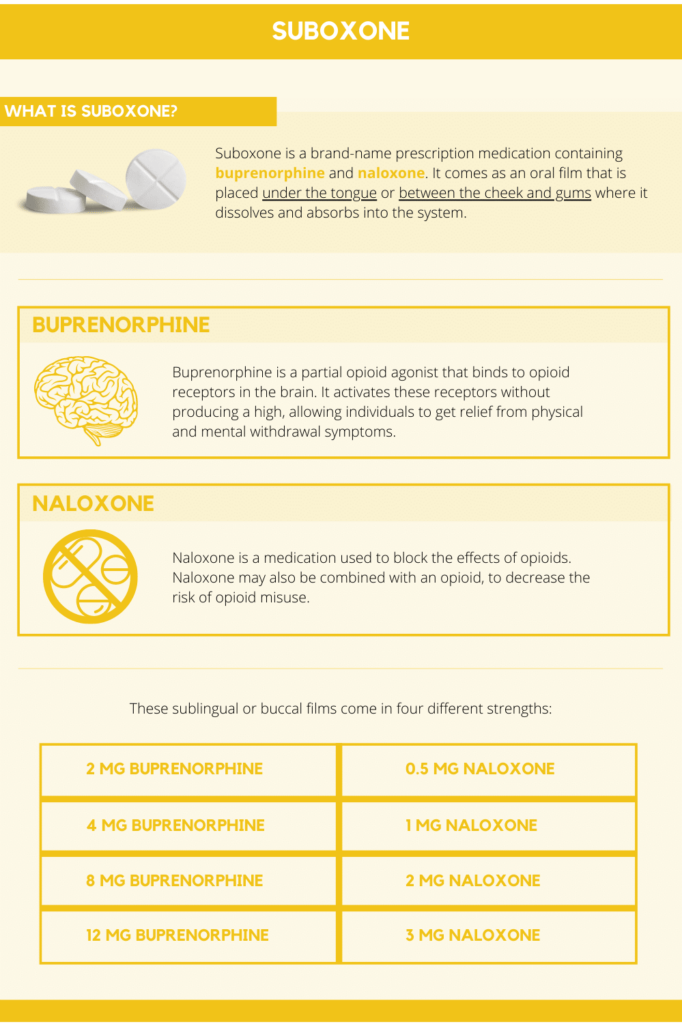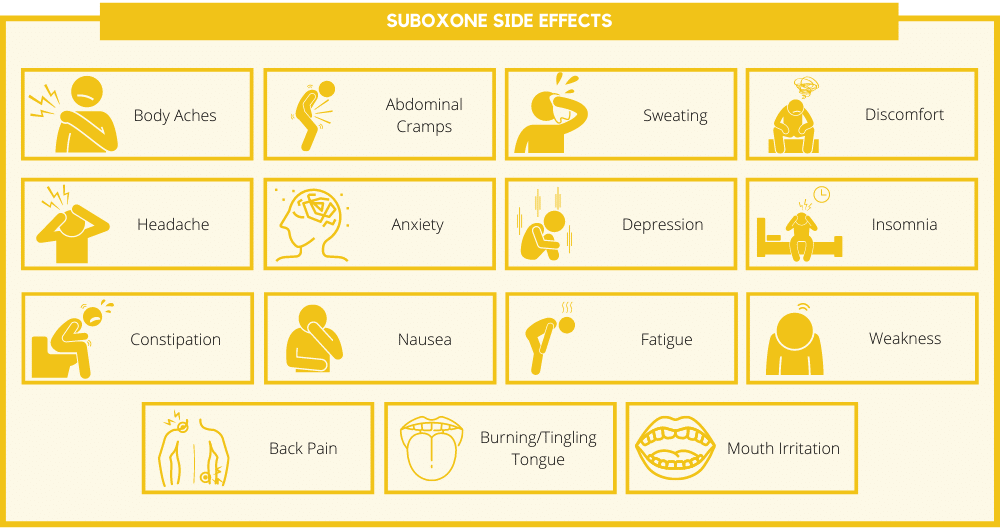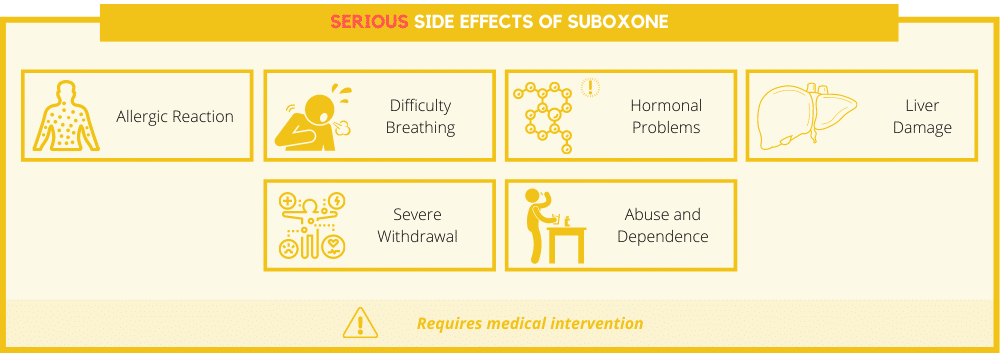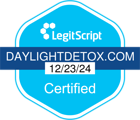2020 was officially the deadliest year on record for drug overdose deaths. More than 93,000 people in the United States died in 2020 from a drug overdose, a 30% increase from the previous year. Of those 93,000 deaths, 57,000 involved synthetic opioids, and 13,000 involved heroin.[1] Despite major medical advances in modern medicine which allow addiction treatment centers to address opioid addiction effectively, the opioid crisis shows no signs of slowing down.
Opioid addiction is extremely hard to beat without professional help. Today, the gold standard for treating opioid addiction is referred to as Medication-Assisted Treatment (MAT). MAT involves the use of opioid replacement medications and other FDA-approved drugs in combination with behavioral therapy to treat addiction. One of the most commonly used medications for opioid dependence is Suboxone (buprenorphine/naloxone).
Suboxone treatment programs in West Palm Beach apply the evidence-based treatments used in MAT on an individualized basis to give each patient the quality care they deserve.

What is Suboxone?

Suboxone is a brand-name prescription medication containing buprenorphine and naloxone. It comes as an oral film that is placed under the tongue or between the cheek and gums where it dissolves and absorbs into the system. These sublingual or buccal films come in four different strengths:
- 2 mg buprenorphine/0.5 mg naloxone
- 4 mg buprenorphine/1 mg naloxone
- 8 mg buprenorphine/2 mg naloxone
- 12 mg buprenorphine/3 mg naloxone
Buprenorphine is a partial opioid agonist that binds to opioid receptors in the brain. It activates these receptors without producing a high, allowing individuals to get relief from physical and mental withdrawal symptoms. As a long-acting partial opioid, buprenorphine can be abused and may cause physical dependence. However, naloxone is added to Suboxone to prevent abuse of the medication. Naloxone blocks the euphoric effects of opioid drugs.[2]
Suboxone is a Schedule III controlled substance, meaning it has accepted medical use but can cause physical or psychological dependence or may be abused. Only physicians who have undergone specialized training can prescribe this medication.
Suboxone Side Effects
Suboxone, like all medications, may cause side effects. The most common side effects include:[2]

- Symptoms of opioid withdrawal (body aches, abdominal cramps, sweating, discomfort)
- Headache
- Anxiety
- Depression
- Insomnia
- Constipation
- Nausea
- Fatigue
- Weakness
- Back pain
- Burning or tingling tongue
- Redness or irritation in the mouth
These side effects are likely to go away within days or weeks of taking the medication. However, other more serious side effects, although rare, may require medical intervention. These include:

- Allergic reaction
- Difficulty breathing
- Hormonal problems
- Liver damage
- Severe withdrawal (if taken too soon after taking opioids)
- Abuse and dependence
Participants in Suboxone treatment in West Palm Beach have regular doctor visits and access to the medical staff at all hours of the day. If any serious side effects develop, medical staff are available to intervene and adjust the medication.
How Does Suboxone Treat Opioid Dependence and Addiction?
Suboxone is one of many medications that are approved by the Food and Drug Administration (FDA) to treat opioid abuse and dependence. It can be given 12-24 hours after stopping opioids to help reduce the severity of withdrawal symptoms which helps users overcome the initial days of opioid detox.[2] Then, continued Suboxone use, in combination with peer support and individualized counseling, can help patients deal with cravings and other mental symptoms of opioid dependence.
According to SAMHSA, Suboxone and other MAT medications can reduce the need for inpatient detox services while also providing a more comprehensive and individually tailored treatment program. As a result, Suboxone treatment programs are able to address the complex needs of most patients. This approach can reduce the risk of relapse, increase retention in treatment, and improve the lives of recovering individuals.[3]
How Does Suboxone Treatment Work in West Palm Beach?
Treatment with Suboxone involves much more than simply taking daily medication. It starts with detox to address the physical symptoms of opioid dependence and ends with developing a detailed plan for ongoing care.
Medically-Assisted Detox
The first step of treating any kind of addiction is detox. Although opioid withdrawal is typically not life-threatening, it can be difficult to deal with the cravings and flu-like physical symptoms without medical assistance. Detox centers in West Palm Beach have doctors and nurses on-site 24/7 to prescribe and administer medications, monitor patients, and recommend supplemental care.
Suboxone can be given 12-24 hours after a person’s last dose of opioids. It can be given once or twice daily to help reduce withdrawal symptoms and drug cravings.
Medication Management
Suboxone plays many roles in treating opioid addiction. It helps normalize brain chemistry, block the feel-good effects of opioids, alleviates drug cravings, and normalizes body functions. However, it is only effective when it is used correctly. Medication management ensures patients are compliant with their medication.
While in the residential level of care, patients must visit the nurse’s area for all of their medications so there is no risk of abuse. Patients in all stages of Suboxone treatment have weekly check-ins with their prescribing physician to discuss side effects and symptoms. When and if a patient is ready to stop taking Suboxone, his or her physician will develop a tapering schedule to slowly reduce the dose of the medication.
Individualized Therapies
Suboxone is most effective when combined with behavioral therapy and counseling. On a similar note, therapies are most effective when they consider a patient’s individual needs, beliefs, experiences, treatment goals, and more.
When patients begin Suboxone treatment in West Palm Beach, they complete a comprehensive evaluation so the clinical team can learn about their unique needs. This helps the clinical team develop an individualized treatment program.
Types of therapy that may complement Suboxone include:
- Cognitive Behavioral Therapy (CBT)
- Dialectical Behavioral Therapy (DBT)
- Motivational Interviewing (MI)
- Contingency Management (CM)
- Family Systems Therapy (FST)
- Holistic therapies (art, exercise, yoga, meditation, nutrition, etc)
Discharge Planning
Before patients are discharged from treatment, they go through aftercare or discharge planning. Since recovery is a long-term process, a 30, 60, or 90-day stay in rehab is rarely enough. And, if they are still taking Suboxone, further care is required. Patients will work with their substance abuse counselor to develop an aftercare plan that works for them. Aftercare may consist of:
- Sober living
- Alumni group
- 12-Step fellowship
- Outpatient rehab
- Individual counseling
- Medication management
Start Suboxone Treatment in West Palm Beach Today
Suboxone isn’t for everyone, but it can help many people overcome their addiction to opioid drugs like heroin, morphine, or fentanyl. If you or a loved one are addicted to opioids and ready to begin your recovery journey, one of our admissions counselors can speak with you and help you decide whether or not Suboxone treatment is right for you. Don’t wait any longer. Contact us today to get started.
References:



